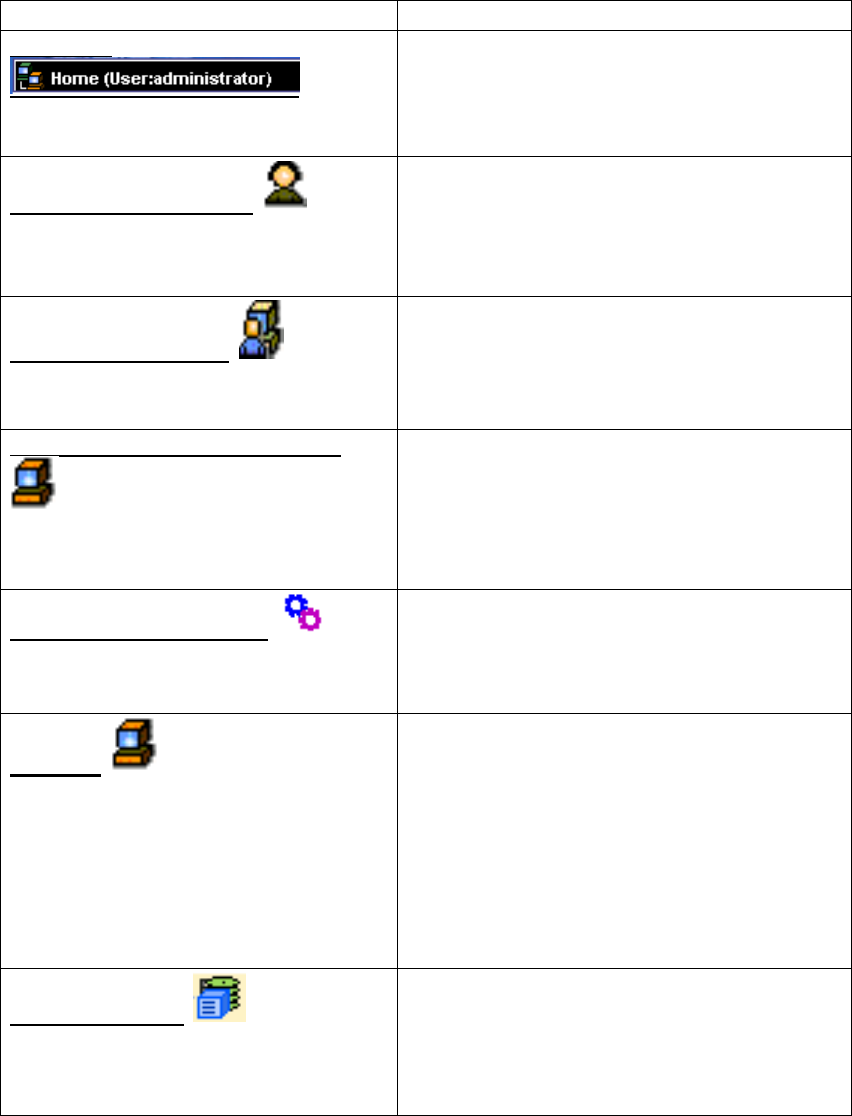
- 11 -
3.3 Icons
When you click the link to an icon on the Tree View, several setting and status display screens
appear on the Management Window. The features grayed out on the Management Window are
unavailable. For details of features, see the relevant chapters.
Tree View Management Window display
Home icon
Indicates the name of the current logon
user in parentheses.
Indicates the version information of WebPAM
PRO.
Administrative Tools icon
Indicates the user, host and software
management information in WebPAM
PRO.
User Management tab
Subsystem/Host Management tab
Software Management tab
User Management icon
Lists user names registered currently in the
Information tab. Logging on to WebPAM PRO as a
super privilege user, you can create, delete or set
users in the Create or Delete tab. Logging on to
WebPAM PRO as another user, you can only change
your password and Display Name.
Subsystem/Host Management icon
(Displayed at logon as a super
privilege user)
Indicates the information on the current
host.
Indicates the IP address of the host, the firmware
version of the controller and the Display Name.
You can change privilege levels of users in the
User Privilege tab.
Software Management icon
(Displayed at logon as a super privilege
user)
Logging on to WebPAM PRO as a super
privilege user, you can set the interval for
refreshing the Event Frame. The Event Frame
can be selected out of 15, 30, 60 and 300
seconds. The default is 30.
Host icon
Indicates the information on the host
including its IP address.
Indicates the version of WebPAM PRO, firmware
version and host information including its IP
address.
Logging on to WebPAM PRO as a super
privilege user, you can change privilege levels of
users in the User Rights tab.
Clicking [Submit] in the Refresh tab allows the
screen to be updated to the latest status. If you
click [Submit], confirmation dialog "Are you sure
you want to refresh" appears. Then click [OK].
ST EX4650EL icon
(Subsystem icon)
Indicates the information on the installed RAID
card. You can provide settings for background
tasks including redundancy check and media
patrol and scheduling and get configuration
information. See the following description for
details.


















